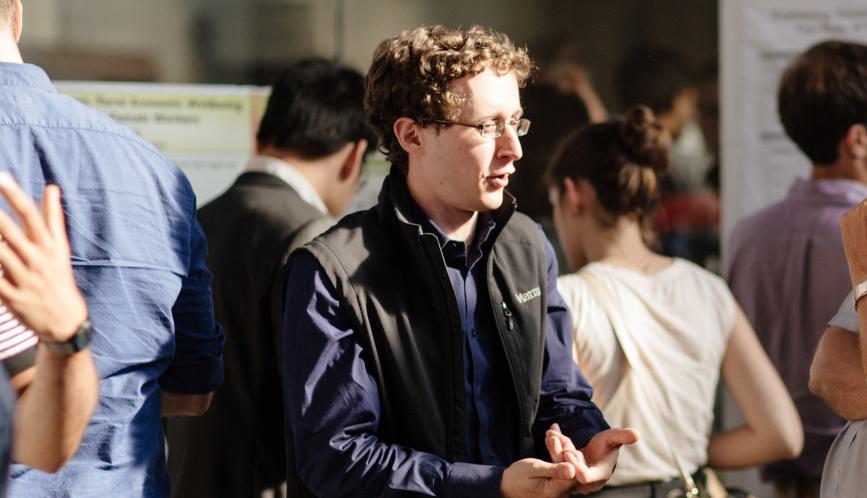Scott Duke Kominers is a leader of the Inequality: Measurement, Interpretation and Policy network. He is a Junior Fellow at the Harvard Society of Fellows, an Affiliate of the Harvard Center of Mathematical Sciences and Applications, an Associate of the Harvard Center for Research on Computation and Society, and a Research Scientist at the Harvard Program for Evolutionary Dynamics. From 2011-2013, he was the inaugural Research Scholar at the Becker Friedman Institute for Research in Economics at the University of Chicago. Kominers’s work focuses on market design and inequality.
Please describe your area of study and how it relates to current policy discussions surrounding inequality.
I spend a lot of time thinking about the design and redesign of markets and marketplaces. My work uses the insights of economics (and related areas like computer science and operations research) to try to build practical solutions to real world market failures.
There many ways in which market design affects in/equality. For example:
-
Marketplace structure itself has distributional consequences. Distributional effects are often implicit – for example, some market rules inherently favor the better-informed, while others do not. We can also use market (re)design to target distributional goals explicitly – some of my own work has looked at the design of affirmative action systems and other sorts of priority structures in school choice programs.
-
Moreover, we sometimes develop markets to help the disadvantaged, or to mitigate specific inequalities. One of my colleagues helped build a market-based system used to allocate food to food banks; another colleague is designing systems for matching refugees to new homes. Meanwhile, some of my current work deals with questions of equitable land reassignment and access.
What areas in the study of inequality are most in need of new research?
Many fundamental inequality issues arise in contexts in which markets are only accessed by certain parts of the population (or where there are no markets). Thus, we need to figure out how to encourage market involvement and to enable people to access market systems.
We need to understand why some people do not trust existing systems, in, say, health care and banking. And we need to understand much more about how to speak clearly about the market rules we use. It is not enough to say “we have set up a market; it’s going to work” – we need to communicate guidelines and strategies to market participants.
What advice would you give to younger scholars emerging in the field?
Make sure you are working on something you truly enjoy. Doing so gets you up early every day (including the weekends), resulting in a massive productivity boost. And besides, life is too short to work on things you don’t find fun. QED.



